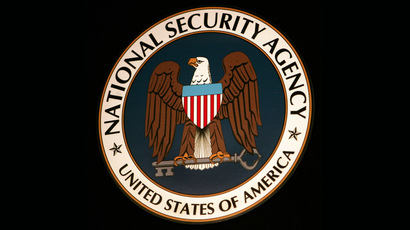US must not prosecute NSA whistleblower Snowden – Amnesty Intl

Amnesty International urges the US not to hunt down Edward Snowden since “no one should be prosecuted for disclosing human rights violations by the government.” They also said the NSA leaker cannot be extradited while his asylum bid is underway.
“No one should be charged under any law for disclosing information of human rights violations by the US government. Such disclosures are protected under the rights to information and freedom of expression,” said Widney Brown, Senior Director of International Law and Policy at Amnesty International.
Snowden, who is behind the biggest intelligence leak in the NSA history, was charged under the Espionage Act in the US.
“It appears he is being charged by the US government primarily for revealing its and other governments’ unlawful actions that violate human rights,” the human rights watchdog’s official pointed out.
As the American authorities’ world-wide chase for Snowden continues, Washington has called on states in the Western Hemisphere to surrender the NSA whistleblower to US jurisdiction.
Snowden – who turned 30 four days ago – arrived in Moscow from Hong Kong on Sunday and has since then remained in a transit zone of Sheremetyevo airport in the Russian capital. His arrival “came as a surprise” for Russian authorities, President Vladimir Putin said on Tuesday. The Russian leader also dismissed all accusations against Russia in connection with the Snowden case as “rubbish and nonsense.”
“As a transit passenger he is entitled to buy a ticket and fly wherever he wants to. He does not cross [Russia’s] state border, therefore he does not need a visa,” Putin underlined.
Snowden requested political asylum in Ecuador and the country’s government vowed to analyze his bid and then make a decision on the matter. Additionally, WikiLeaks – which has remained in contact with the NSA leaker and provided him with assistance - approached Iceland and other countries with a formal request for Asylum for Snowden.
Earlier, the whistleblower’s American passport is thought to have been revoked – which, according to Amnesty International, interferes with the NSA leaker’s rights to freedom of movement and seeking asylum elsewhere.
“Regardless of where Snowden ends up he has the right to seek asylum. For such a claim to succeed, he must demonstrate a well-founded fear of persecution. Even if such a claim failed, no country can return a person to another country where there is a substantial risk of ill-treatment,” said Amnesty International’s Brown.
The organization believes Snowden’s forced transfer to American soil would put him at risk of human rights violations and “must be challenged.”
Michael Bochenek, Director of Law and Policy at the activist group, told RT they “raised a lot of concerns” about the crimes for which he is being sought and the treatment he might receive upon his surrender to the US.
“With respect to the treatment, we know from other cases – for e.g. from the case of Bradley Manning – that individuals have been subjected to what, not just we, but also UN officials have called “cruel, inhuman and degrading treatment.” And that is yet another potential violation of human rights law to which somebody should not be subjected. It’s a reason not to extradite,” he said.
In his view, there is nothing wrong with governments keeping secret information on international security, and particularly information that can hurt anyone if disclosed. But, Bochenek went on to say, that was not what the Obama Administration or his predecessor President Bush’s administration were trying to do.
“What we are really seeing now is a continuation and argumentation of the policies that began with President Bush really to extend government power to the utmost and beyond and also to use all the tools at their disposal to enforce a vision of the world in a sense of the projection of the US power that too often is disregarding [of human rights],” he stated.
Now that it is getting harder for governments around the world to keep information classified, they should keep in mind that when they “invade the privacy” of their own or foreign citizens without any cause or suspicious bit only “in order to get information you think might be useful someday in some sense” - questions will be asked.
“The chickens will come home to roost, as they say in the US,” Bochenek pointed out.














